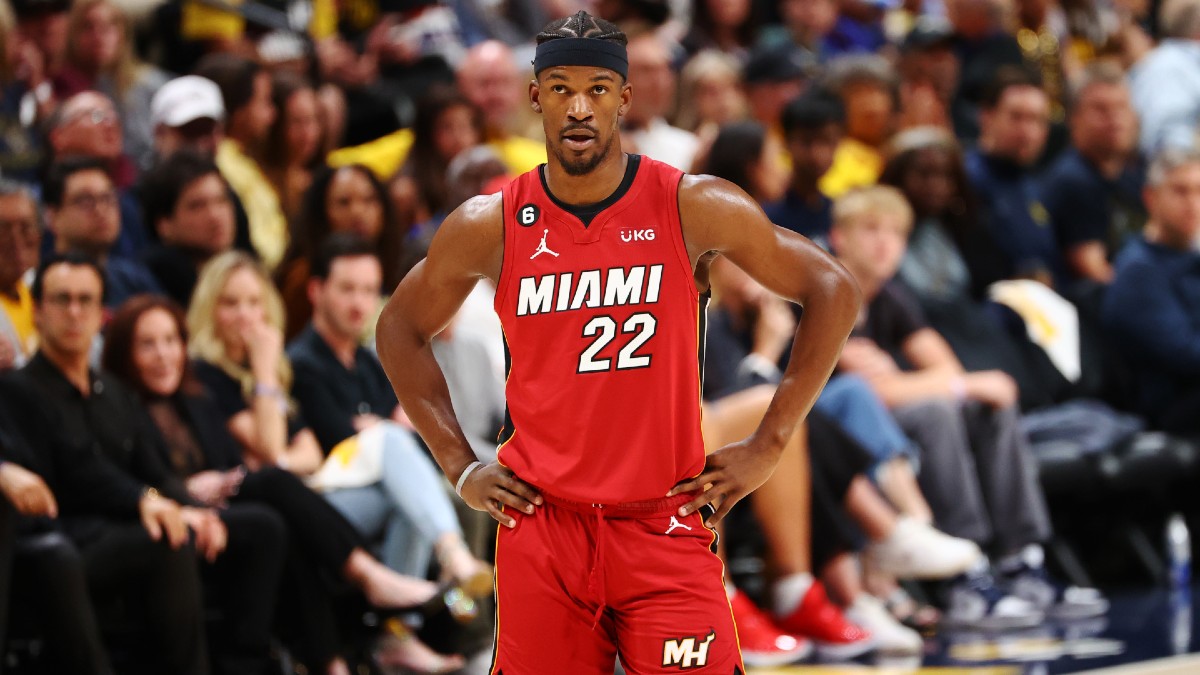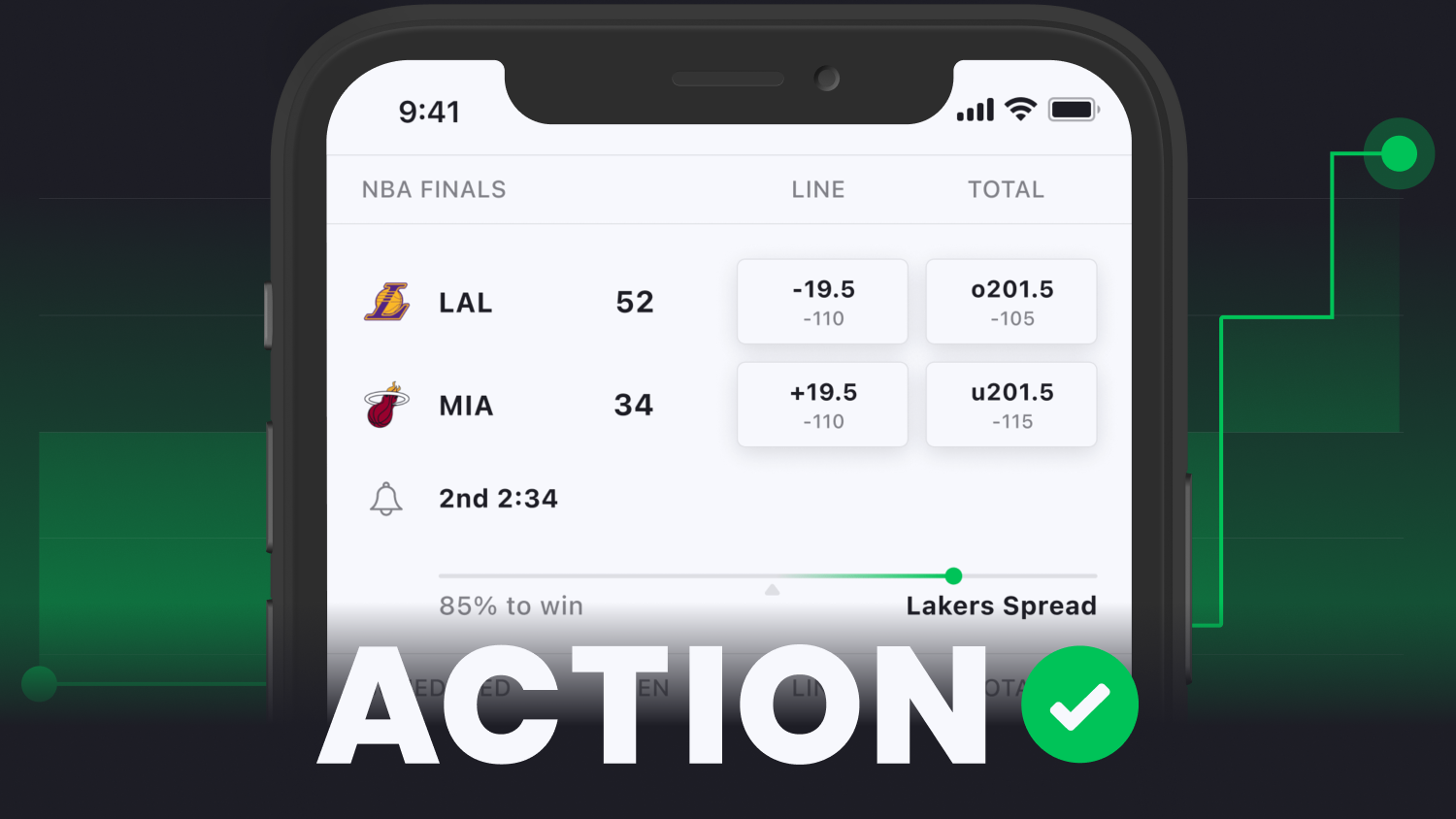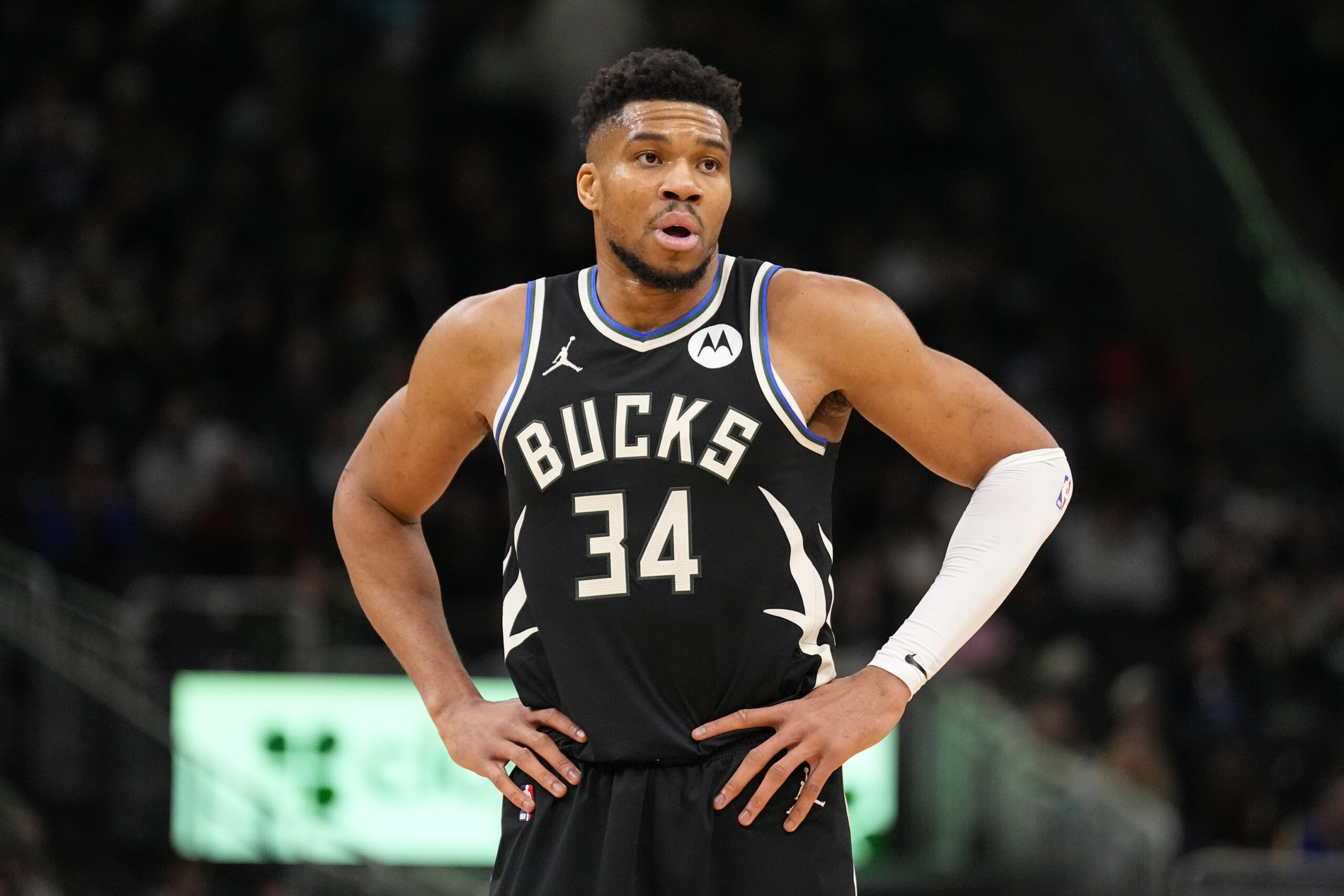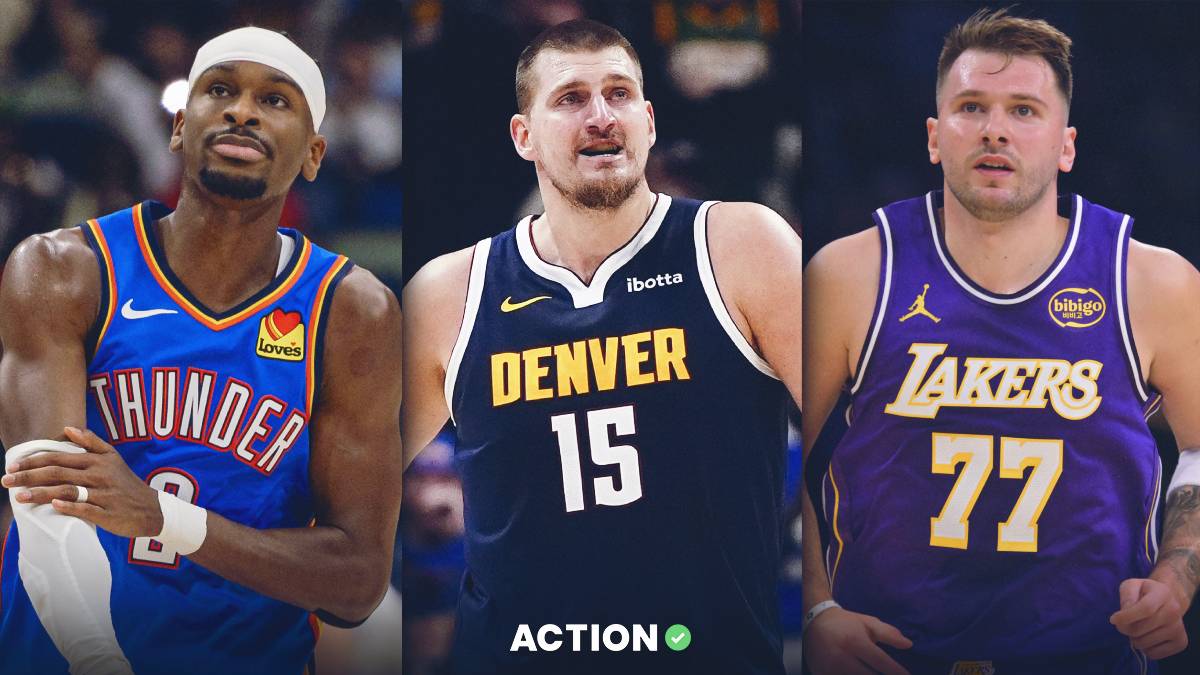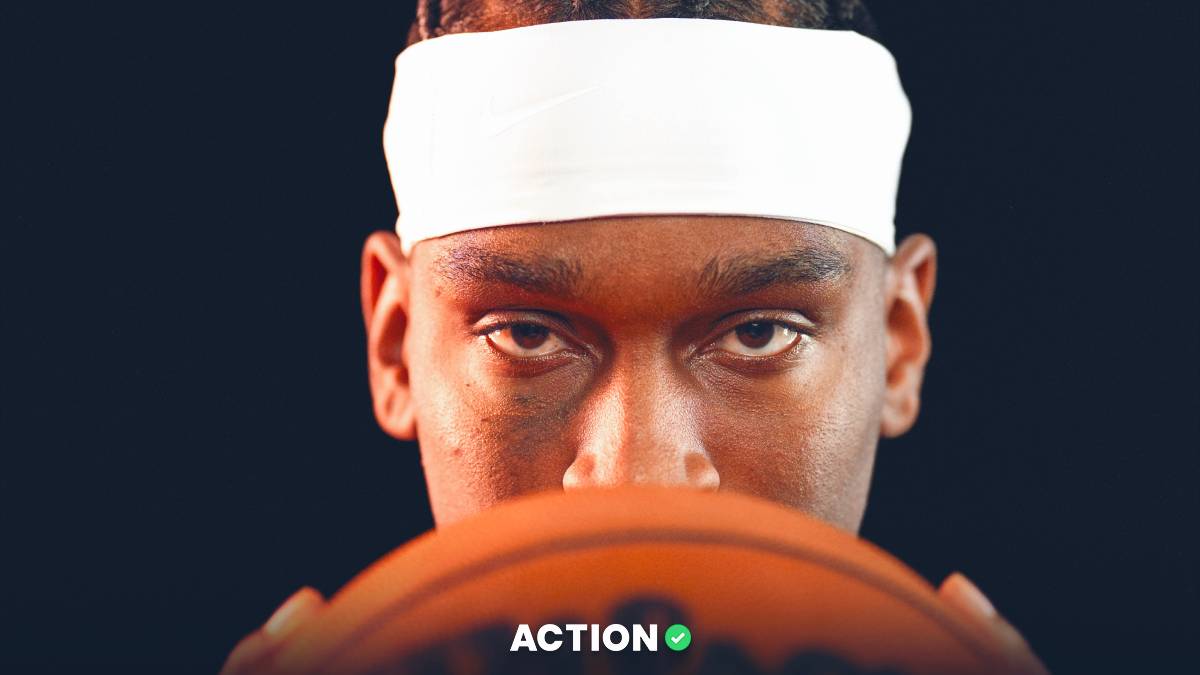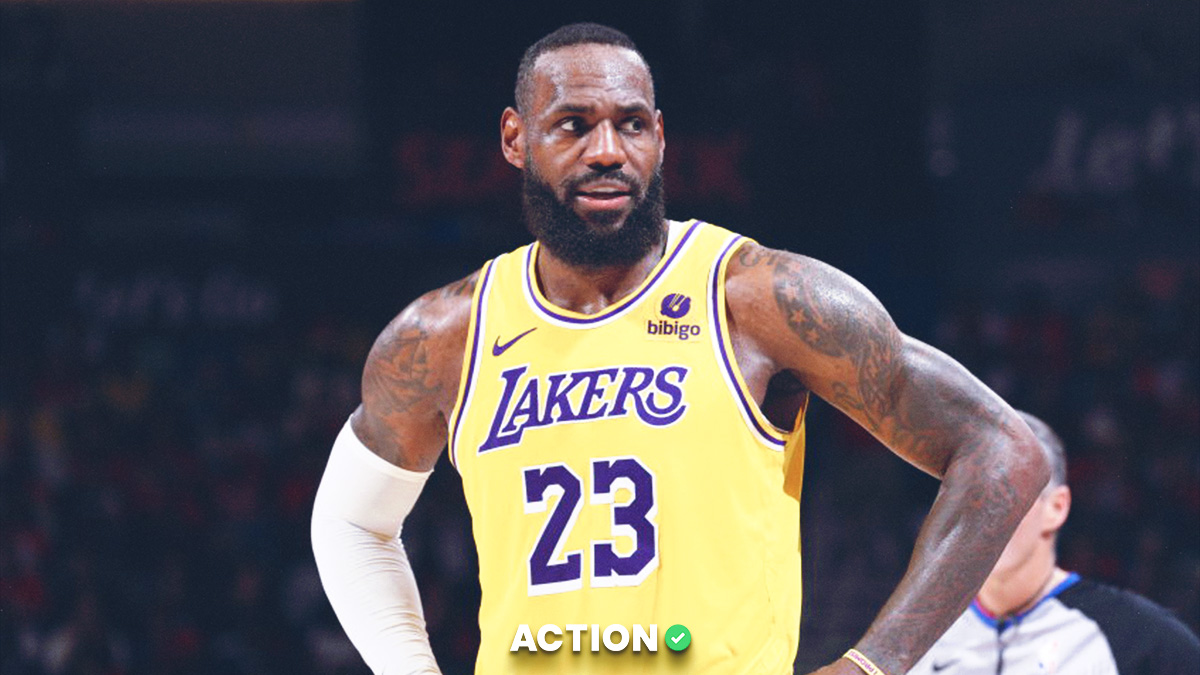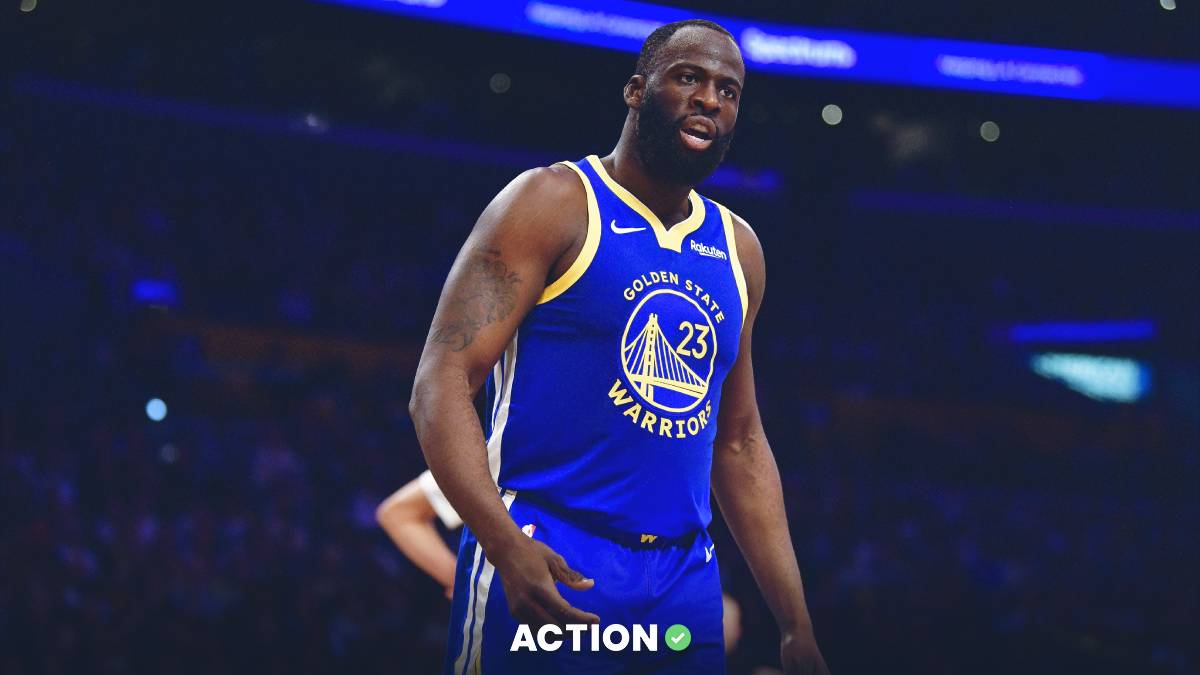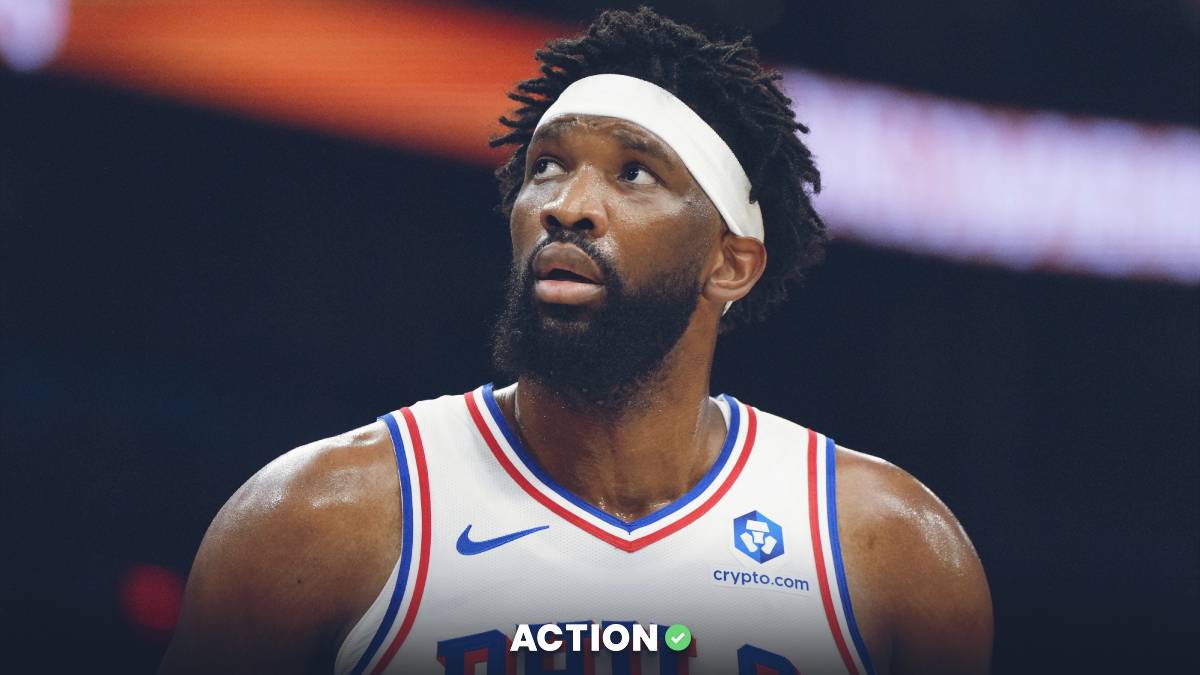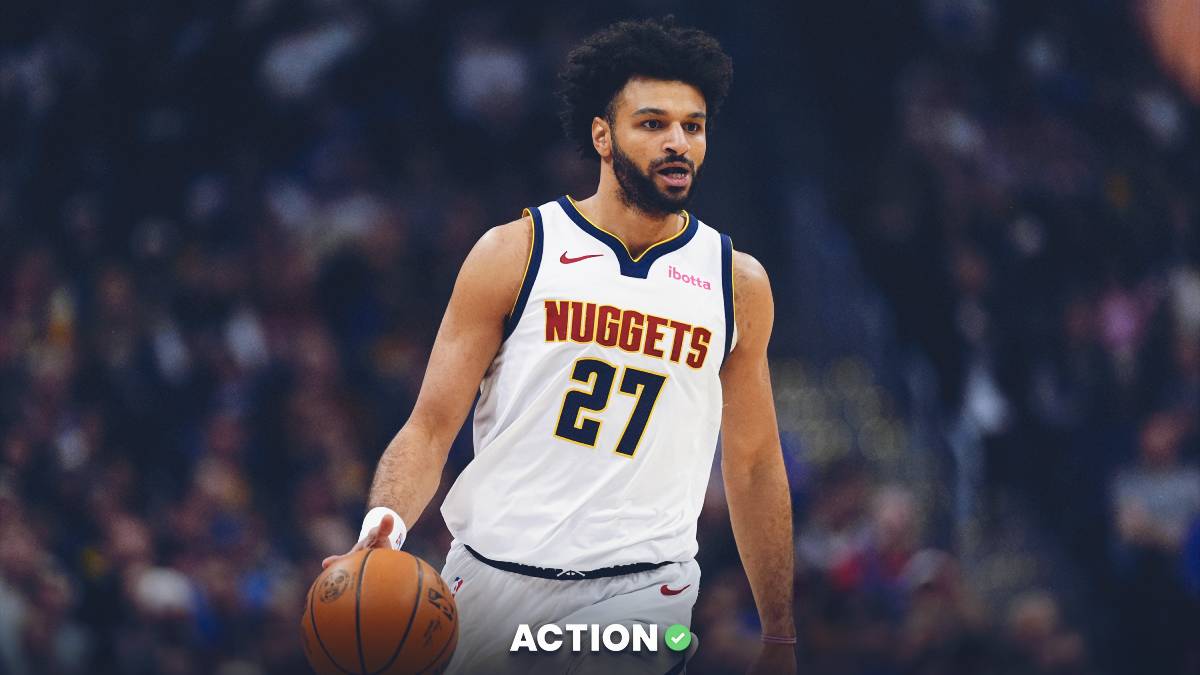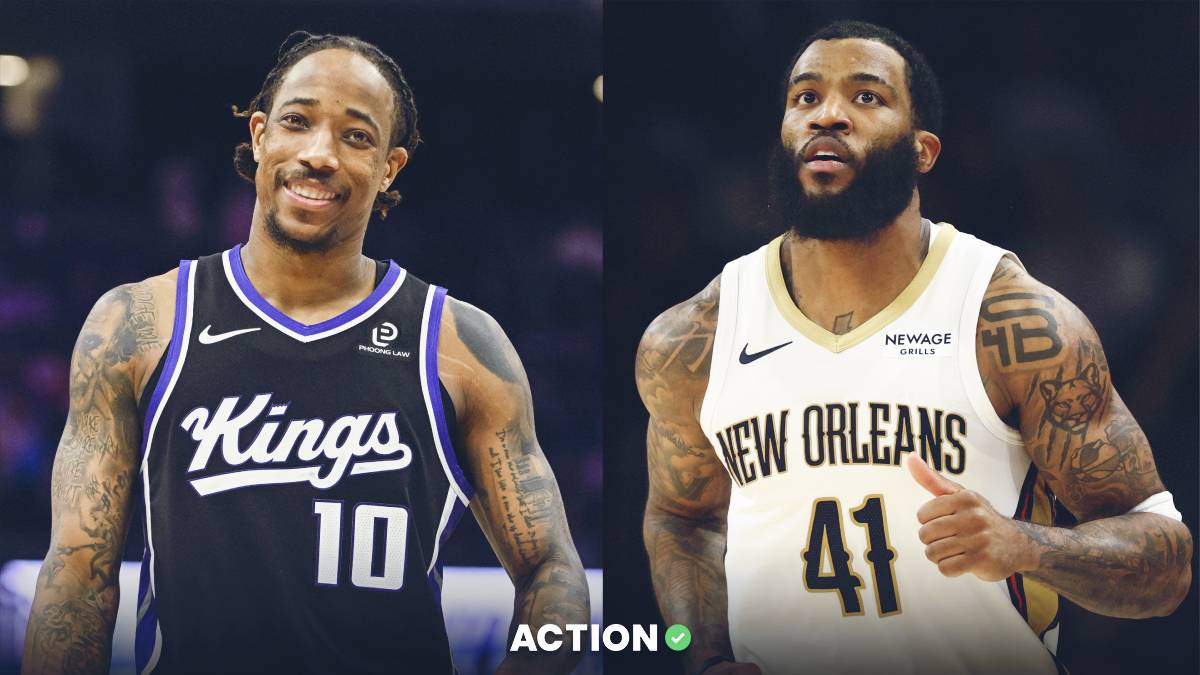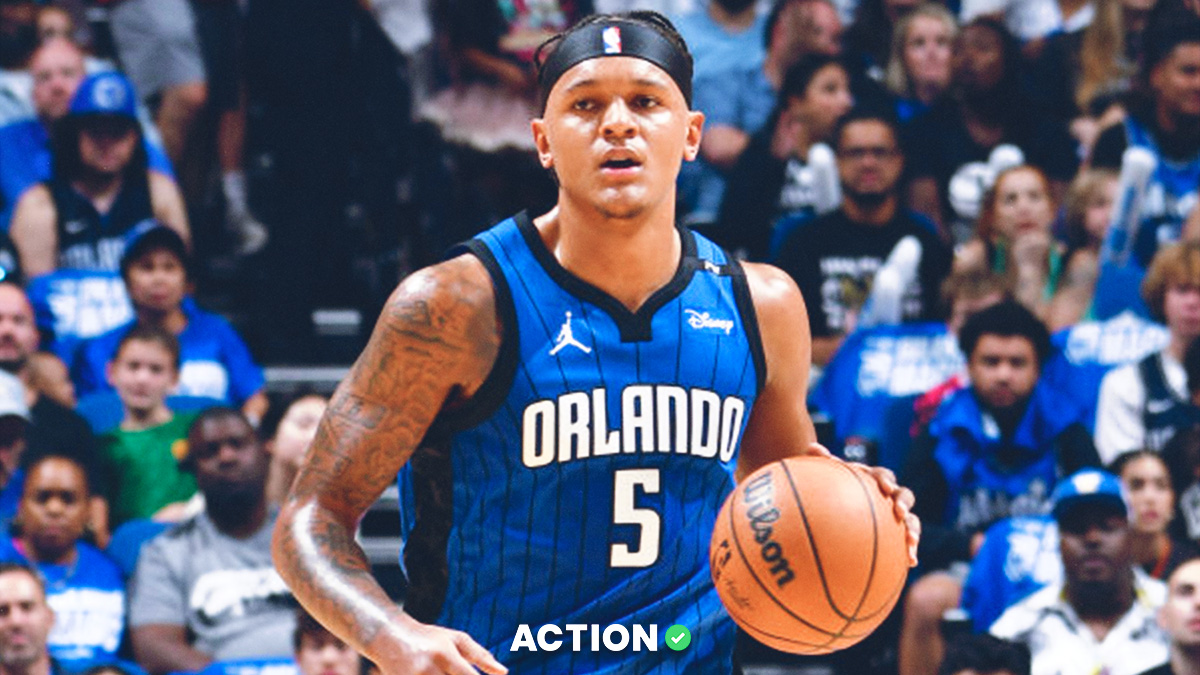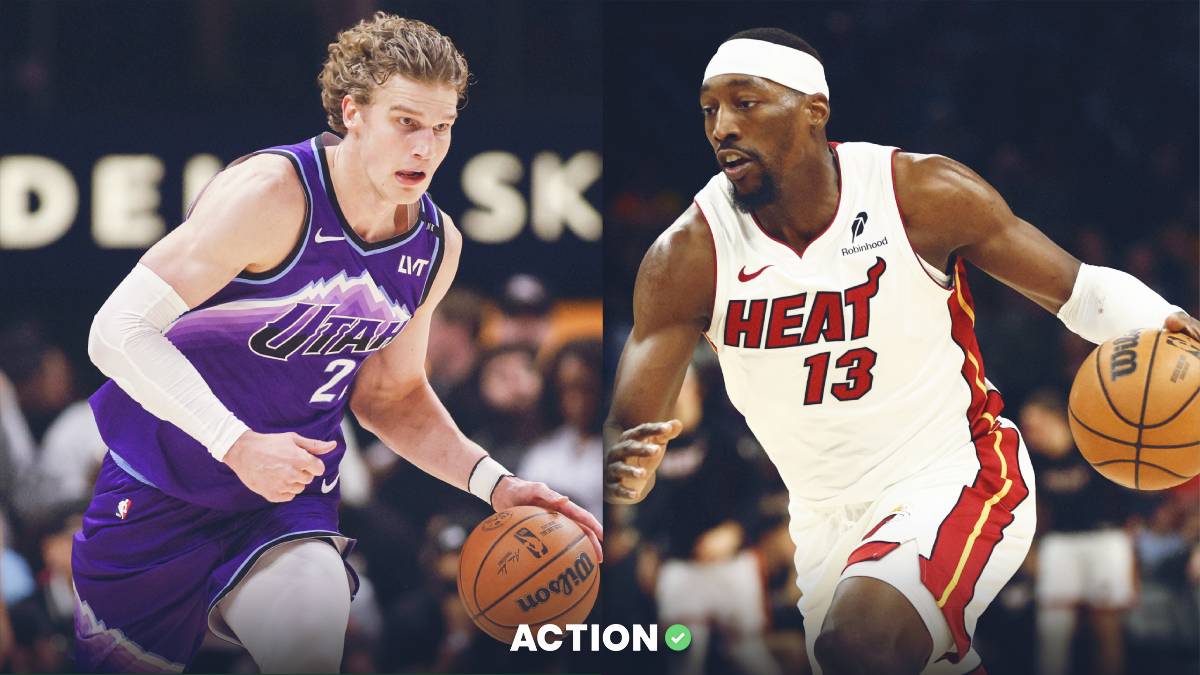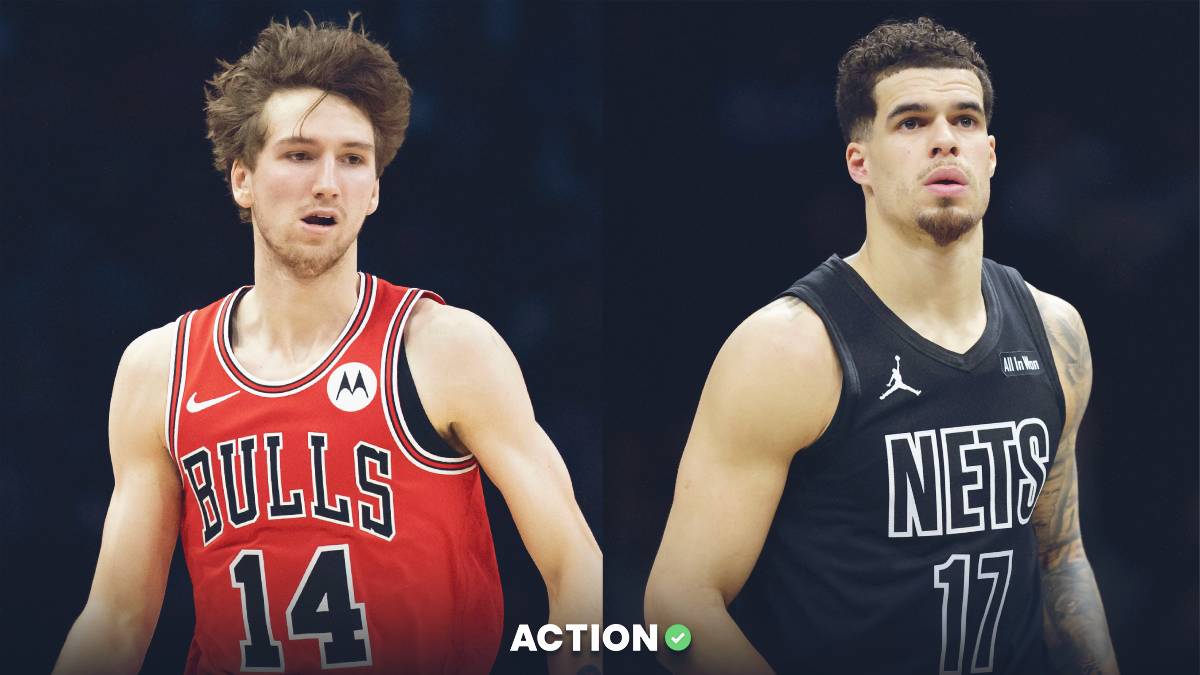The 2023 Miami Heat were that long-shot parlay that almost hit and that you laugh about later.
But the thing about long-shot parlays is … they're long shots for a reason.
The Miami Heat came within three wins of a championship. That's an incredible run for an 8th seed, for a team that trailed in the second play-in game and was facing elimination with three minutes to go. And don't forget that this team also had a negative point differential in the regular season.
The Heat were underdogs to the No. 1 seed Milwaukee Bucks in the first round, to the Knicks in the conference semifinals and to the Celtics in the Eastern Conference Finals.
The Heat's offense hasn't been very good for years. It was their biggest liability in last year's far-more-impressive run to the conference finals. However, the Heat shot 45% in their first-round upset against the Bucks and 43% from 3 in their conference finals run vs. the Celtics.
Heat fans began to parrot the talking point that the Heat were an excellent shooting team the year before, but there are a few things to note:
A. The Heat rotation was different. Three of the Heat's top-10 shooters in 3-point attempts per game from the 2022 playoffs were not in this year's rotation, whether due to injury or free agency.
B. In the playoffs, Duncan Robinson and P.J. Tucker (who departed in free agency) were the only players in that top 10 who shot over 34%.
This was not a good offensive team. It was a bad offensive team that shot exceptionally well in two series.
We associate this Heat team with the 2020 Bubble team and the 2022 Eastern Conference runner-ups because if a team has similar success, it's the same team, but if it has different levels of success, "things changed."
But every season in the NBA is a microcosm. We see teams go from excellent to terrible.
So, how did the Heat make the NBA Finals and get within three wins of a championship? Here are the parlay legs that had to hit:
– Lose the first play-in game, to avoid playing Boston earlier
– Face a Bucks team where Giannis Antetokounmpo is injured in the first quarter*
– Shoot the absolute leather off the ball in that first-round series (45% from 3)
– Face a pretty mediocre Knicks team that was extremely banged up, especially Julius Randle**
– Shoot the leather off the ball again vs. the Celtics (43% from 3)
– Have Jayson Tatum suffer an ankle injury on the first play of Game 7, and have the rest of the team fall to pieces (which was a likely event)
*Tyler Herro and Victor Oladipo's injuries cannot and should not be ignored
**I'm throwing this in the parlay, but Miami should have been favored vs. the Knicks. The Heat avoiding the Cavaliers was a benefit, honestly.
Any one of these events? Sure. But it took all of them together for Miami to reach the Finals.
A natural response here would be to note that every team's playoff run is full of very specific and relatively unlikely events. The Nuggets faced the 8th-seed Wolves (because they were the No. 1 seed), the 4th-seed Suns (who were the Western Conference favorites at sportsbooks) and the 7th-seed Lakers.
However, the Nuggets' performance in the playoffs matched their regular-season performance, and they were remarkably consistent. They also didn't shoot as well from 3 as Miami — Denver's best 3-point performance came against the Lakers at 40%.
But with the Heat, we have to separate out what they did this season compared to previous runs.
We can credit the Heat for being an organization that put itself within range of a championship in three of the past four years while also understanding that they weren't the same team each year and that their approach was different each time. We can also acknowledge that this year's Heat team was probably significantly worse than last year's. It just ran into a worse Celtics team and shot way better.
This brings us to Jimmy Butler.
Playoff Jimmy further obscures our ability to accurately analyze the 2023 Heat.
We have to accept multiple things as true:
A. Butler was never the same after suffering an ankle injury vs. the Knicks. Butler deserves a ton of credit for shutting down any talk of his injury after losing to the Nuggets, but he went from being an absolute superstar vs. the Bucks to a pretty average or below-average star after.
B. Butler has a history of not being able to be the superstar a team needs on a night-in and night-out basis.
That's the biggest problem with Butler's status as an elite superstar.
In the last four postseasons, Butler has 18 games with a box plus-minus ("estimate of the points per 100 possessions that a player contributed above a league-average player") of 10 or more out of 64 playoff games played. Some comparisons for that:
– Nikola Jokic: 21 of 41 games (51%)
– LeBron James: 20 of 43 games (47%)
– Kawhi Leonard: 15 of 26 games (58%)
– Luka Doncic: 16 of 28 games (57%)
– Giannis Antetokounmpo: 19 of 45 games (42%)
– Steph Curry: 11 of 35 games (31%)
– Jayson Tatum: 14 of 66 games (21%)
In the last four postseasons, Butler has 23 games with a BPM of 5 or less. Let's compare those same players above:
– Jokic: 12 of 41 (29%)
– James: 13 of 43 (30%)
– Leonard: 6 of 26(23%)
– Doncic: 7 of 28 (25%)
– Giannis: 10 of 45 (22%)
– Steph: 16 of 35 (44%)
– Tatum: 30 of 66 (46%)
So Butler has a 10+ BPM in 28% of his playoff games since 2020 and a BPM of less than 5 in 36% of those games.
Those contemporaries have, on average, a 10+ BPM in 41% of their combined games and a BPM of 5 or less in 33% of their games on average.
Now, a +5 BPM isn't a bad thing. It's an All-NBA level, but this — again — is the bar we're talking about.
Butler hits his highs less often and his lows more often than his contemporaries.
The point here is not to diminish Butler.
Butler plays in more playoff games, so the bar is higher than, say, Doncic. He's had to play twice as many playoff games as Curry.
Butler also has six of the top 30 individual BPM playoff games since 2020. His highs are spectacular. His lows aren't low; they're just lower than the average superstar.
Butler was unquestionably injured from the Knicks series on. You can just watch how he deferred with Jamal Murray switched on him or check his field-goal percentage at the rim to understand that.
But Butler played, and he understands that if you play, you get judged on it. And the way he tends to drift in and out is a trend that goes beyond this season.
Butler is not an every-playoff-game superstar. That's not who he's been, and it certainly isn't who he'll be going forward. The Heat got an incredible 56-point performance out of him and sheer domination in the Bucks series. Butler dismantled Jrue Holiday, one of the best defenders in the league.
Those moments can't be ignored.
But to be a superstar, to be a "best-player-on-a-championship-team" superstar, you need to bring it every single night. That's the bar.
In many ways, Butler is the bar for being good enough to win a title. A team's best player needs to be better than Butler in the playoffs for that team to be good enough, at least most years.
But if we're trying to figure out who the Heat are (and how to bet them) going forward, we need to put this playoff run into context.
It was improbable and dramatic. It was a team reaching far above its ceiling. We can recognize how special that is while also knowing we shouldn't bet on that same opportunity being there next season.
We won't count out the Heat next season. We shouldn't.
They'll find a way to make the playoffs and to challenge their first-round opponent. They might have home court and a better team, but we need to understand that our analysis of next year's team needs to be on next year's team and not on this one.
Because this one was just a long-shot parlay that came up one leg short.


